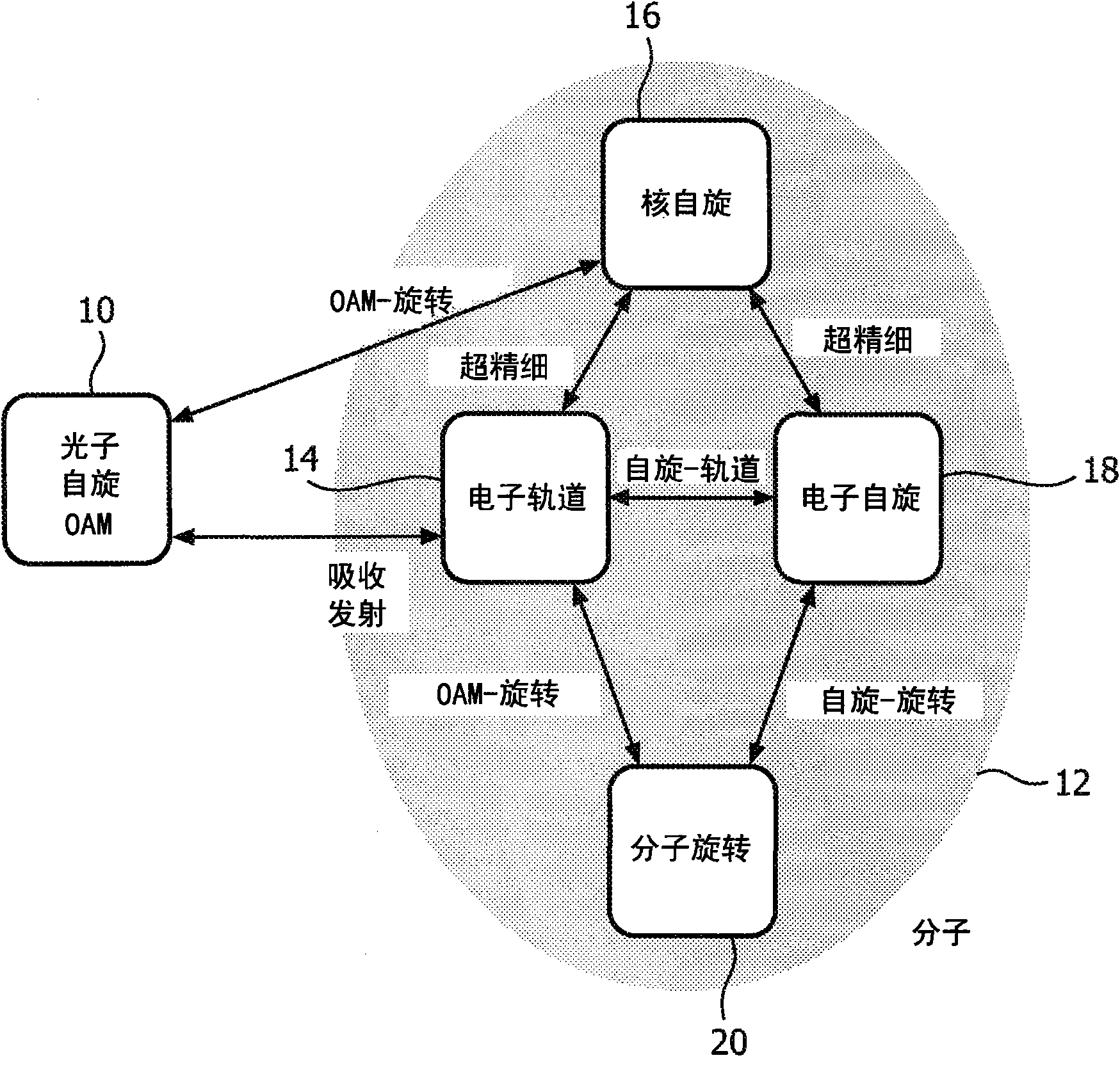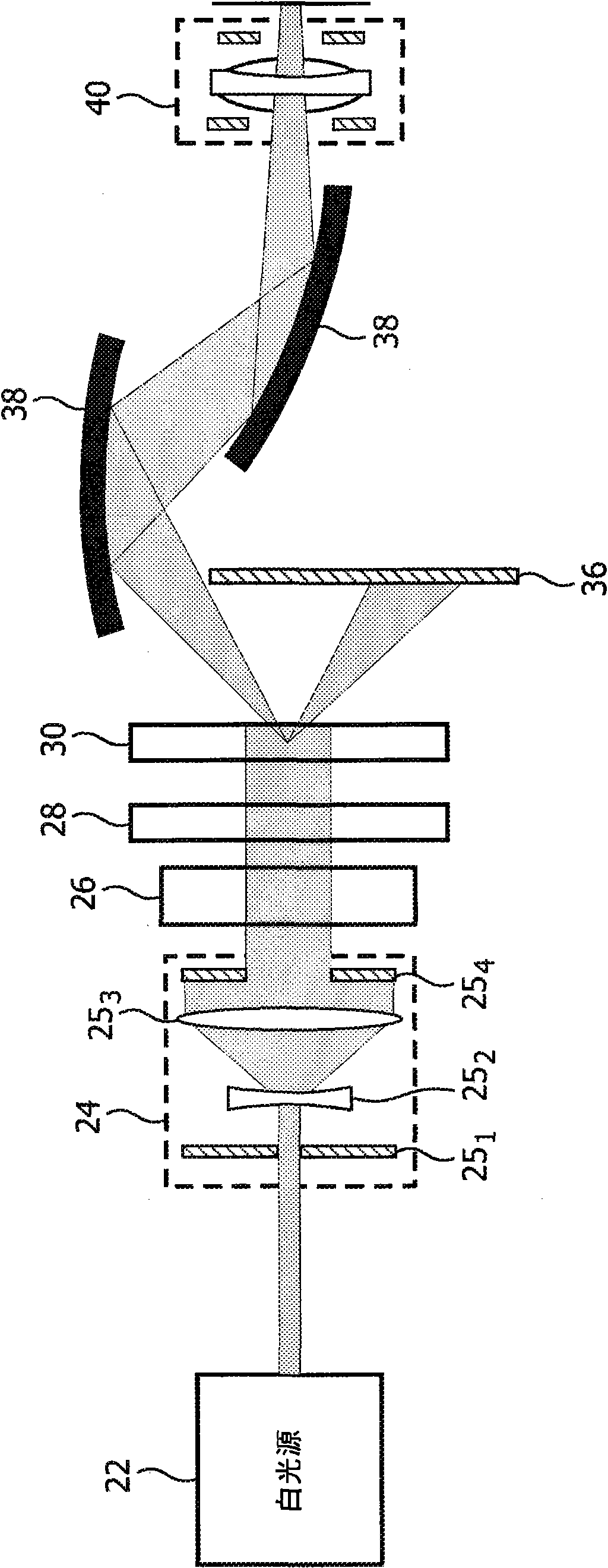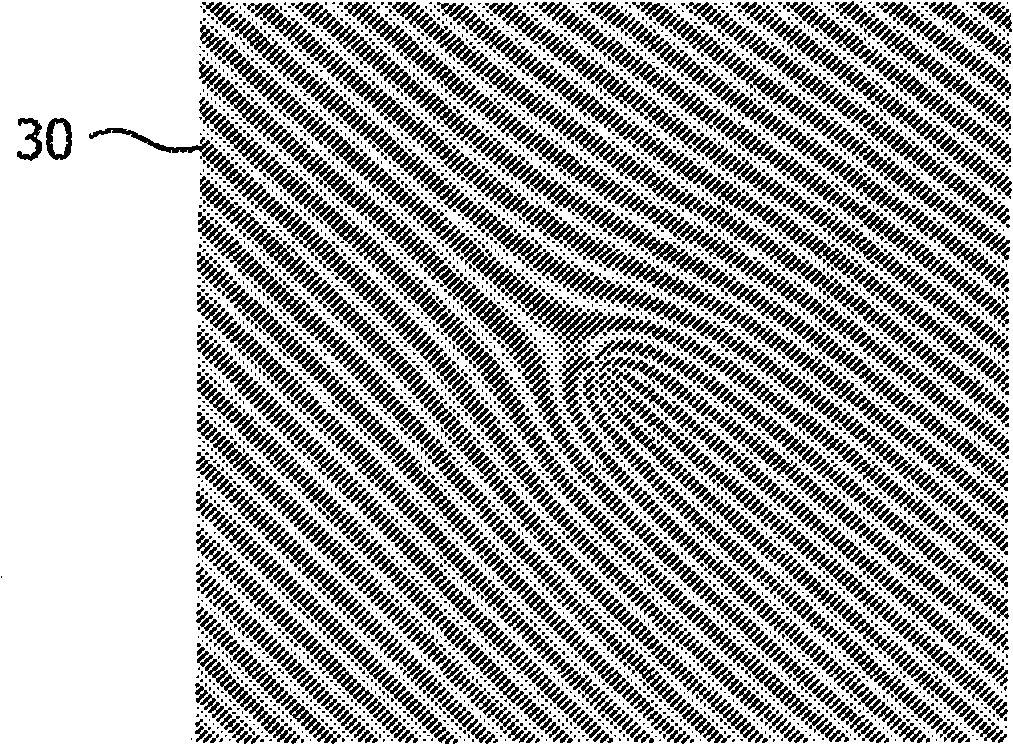Magnetic resonance imaging using hyperpolarization of liquids or solids by light with orbital angular momentum
A technology of orbital angular momentum and magnetic resonance, which is applied in the analysis by nuclear magnetic resonance, material analysis by resonance, magnetic resonance measurement, etc., to achieve the effects of low cost, improved accessibility, and improved resolution
- Summary
- Abstract
- Description
- Claims
- Application Information
AI Technical Summary
Problems solved by technology
Method used
Image
Examples
Embodiment Construction
[0028] Orbital angular momentum (OAM) is an intrinsic property of all light carrying an azimuthal phase, independent of the choice of axis around which the OAM is defined. When interacting with an electronically distinct and isolated system, such as a free atom or molecule, OAM can be transferred from light to the substance.
[0029] Various experiments have used light-matter interactions endowed with OAM, for example, optical tweezers, high-throughput optical communication channels, optical encryption, optical cooling (Bose-Einstein condensation), photon entanglement with OAM, and molecular molecular Entanglement of numbers with the OAM of interacting photons. Because angular momentum is a conserved quantity, the OAM of the absorbed photon is completely transferred to the interacting molecule. As a result, the affected electronic state reaches its saturated spin state, the angular momentum of the molecule about its own center of mass increases and is oriented along the propa...
PUM
 Login to View More
Login to View More Abstract
Description
Claims
Application Information
 Login to View More
Login to View More - R&D
- Intellectual Property
- Life Sciences
- Materials
- Tech Scout
- Unparalleled Data Quality
- Higher Quality Content
- 60% Fewer Hallucinations
Browse by: Latest US Patents, China's latest patents, Technical Efficacy Thesaurus, Application Domain, Technology Topic, Popular Technical Reports.
© 2025 PatSnap. All rights reserved.Legal|Privacy policy|Modern Slavery Act Transparency Statement|Sitemap|About US| Contact US: help@patsnap.com



